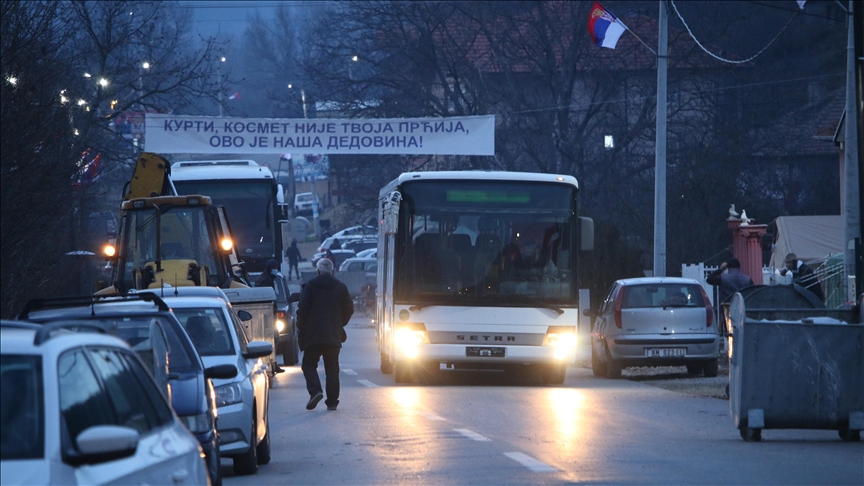BERLIN
A German government spokeswoman on Monday expressed relief over the easing of tensions between Serbia and Kosovo following the removal of barricades blocking the main border crossing by Kosovo Serbs.
“It’s a good sign that the two sides have approached each other and that the Serbian minority in northern Kosovo has lifted the roadblocks,” Christiane Hoffmann told journalists in Berlin.
“It is now primarily important that the dialogue between Serbia and Kosovo is further supported. The federal (German) government does that very actively and it also supports the mediation efforts of the EU,” added Hoffmann.
Neither Hoffmann nor a spokesman for the German Foreign Ministry wanted to comment on Kosovar Prime Minister Albin Kurti’s call for more NATO soldiers to be sent.
Hoffmann stressed Berlin is initially focusing on supporting the dialogue.
In an interview with German newspaper WELT, Kurti said “a significant increase in NATO soldiers and military equipment in our country would improve security and peace in Kosovo and in the entire Western Balkans region.”
The NATO-led security force KFOR has been supposed to guarantee security throughout Kosovo since 1999. It currently has almost 3,800 members, including around 70 German soldiers.
Formerly part of Serbia, Kosovo has been independent since 2008. Serbia does not accept this and claims the country’s territory for itself.
In the past few weeks, Kosovo Serbs had erected barricades in a dozen places in northern Kosovo, blocking the access routes to two border crossings to Serbia, among other things.
They were protesting against the arrest of a former Serbian officer by Kosovo police, who, according to the Kosovar authorities, is said to have directed attacks on the electoral authority.

